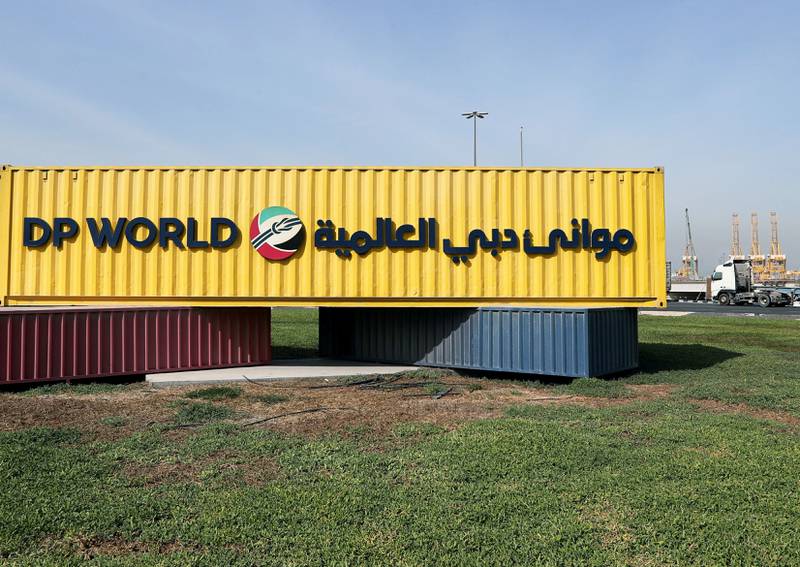DP World's third-quarter shipping volumes rise 8.1% as global trade recovers

DP World, one of the world's largest port operators, posted an 8.1 per cent increase in third-quarter gross container shipping volumes, beating the industry average of 6.4 per cent, with all the regions it operates in reporting growth.
The Dubai-based ports company handled 19.8 million twenty-foot equivalent units, or TEUs, across its global portfolio of container terminals in the third quarter of 2021, up from 18.2 million TEUs in the same quarter a year ago, it said on Tuesday.
The growth was mainly driven by the company's operations in the Middle East, Africa, Australia, the Asia-Pacific region and India, with a "strong performance" reported in Qingdao in China, Mumbai in India and Sokhna in Egypt, it said.
"This strong performance illustrates the resilience of the global container industry and DP World’s continued ability to outperform the market," said Sultan bin Sulayem, group chairman and chief executive of DP World.
"Encouragingly, all our regions continue to deliver volume growth, with India being a key driver."
Global trade is expected to grow 9.7 per cent a year in 2021 and 6.7 per cent in 2022, after shrinking 8.2 per cent in 2020, despite "temporary disruptions", according to the International Monetary Fund.
Trade growth is projected to moderate to about 3.5 per cent over the medium term and the overall trade recovery masks a subdued outlook for tourism-dependent economies and cross-border services more generally, the fund said.
DP World handled 58.4 million TEUs in the first nine months of 2021, up 11.9 per cent a year on a reported basis and 11.4 per cent on a like-for-like basis.
"The strong nine-month volumes leave us well placed to deliver an improved set of full-year results and we remain focused on delivering our 2022 targets," Mr bin Sulayem said.
He also said he expects shipping freight container volumes to moderate by the next quarter of this year.
"The near-term outlook remains positive but we do expect growth rates to moderate in the final quarter," he said.
"Furthermore, we remain mindful that the Covid-19 pandemic, continued supply chain disruptions and geopolitical uncertainty could continue to hinder global economic recovery."
Supply chain bottlenecks that disrupted global trade during the Covid-19 pandemic will linger until 2023, Mr bin Sulayem said earlier this month.
The disruptions have led to congestion and delays at ports, a shortage in shipping containers and a sharp rise in the cost of shipping goods.
The coronavirus-induced surge in container shipping rates is expected to continue throughout 2021, with the price increase passed on to consumers, a UN report said in April.
In the long run, policymakers must focus on further reforms in trade promotion and ports, improved tracking and forecasting and measures to strengthen national competition authorities, the UN Conference on Trade and Development (Unctad) said.
“The ripples will hit most consumers,” said Jan Hoffmann, head of Unctad’s trade and logistics branch. “Many businesses will not be able to bear the brunt of the higher rates and will pass them on to their customers.”
About 80 per cent of the goods the world consumes are carried by ships. Changes in consumer behaviour and shopping patterns, including an increase in e-commerce transactions during lockdowns, fuelled demand for imported consumer goods, a large part of which are moved in shipping containers.
Container rates have an effect on global trade since almost all manufactured goods – including clothes, medicines and processed food products – are shipped in containers.
Source: www.thenationalnews.com
